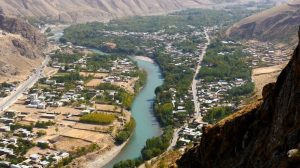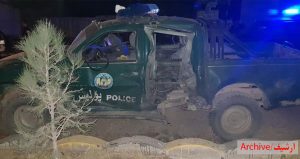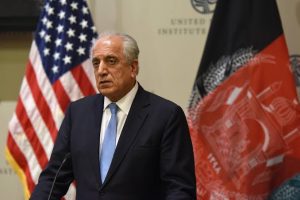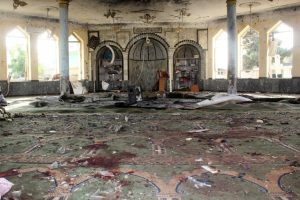Azerbaijani And Armenian Forces Suffer Casualties In Clashes

 KABUL: (MEP) At least 30 Azerbaijani and Armenian soldiers have been killed as heavy fighting erupted between the two groups over the separatist region of Nagorno-Karabakh.
KABUL: (MEP) At least 30 Azerbaijani and Armenian soldiers have been killed as heavy fighting erupted between the two groups over the separatist region of Nagorno-Karabakh.
Both sides blamed the other for the fighting that began overnight.
Azerbaijan said on Saturday that Armenian forces killed 12 of its soldiers and shot down a helicopter.
Armenia first reported the attacks, which it called “unprecedented and aggressive” and said they may lead to “unpredictable consequences” if they continue. The Foreign Ministry called for international intervention.
Armenian President Serzh Sarkisian said 18 Armenian troops were killed and around 35 wounded in the “largest-scale hostilities” since a 1994 truce ended a war that saw Armenian-backed fighters seize the territory from Azerbaijan.
Mr Sarkisian did not specify if the troops were from the forces of unrecognised Karabakh — which claims independence but is backed by Yerevan — or Armenia’s army.
David Babayan, a spokesman for Nagorno-Karabakh’s separatist president, said a boy of about 12 had been killed and two other children wounded in a Grad missile barrage by Azerbaijani forces.
The Russian president, Vladimir Putin, urged all sides to cease firing and “show restraint”, Kremlin spokesman Dmitry Peskov was quoted as saying by Russian news agencies. Russia’s foreign and defence ministers had contacted their Azerbaijani and Armenian counterparts in the hope of stabilising the situation, the ministries said.
Maria Titzian, a lecturer at the American University of Armenia, told Al Jazeera: “For the past 20 months Azerbaijan has been escalating tensions in terms of truce violations.”
She added that Azerbaijan was trying to “derail the peace process” as she called on the international community to do more. The violence, she also said, was at its worst since 1994.
“This corner of the world has been long ignored,” she said. “I think it’s time for the world to pay greater attention to the situation here. It will have a large influence on the greater region if this issue is not resolved peacefully.”




